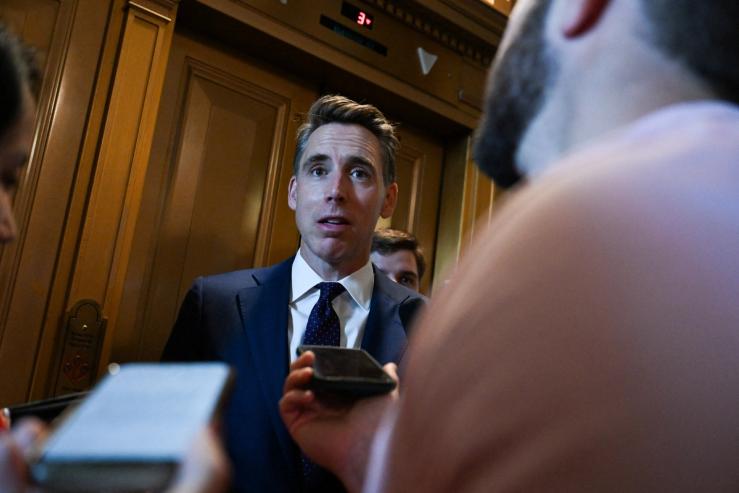The News
Republican senators are joining their Democratic colleagues in calling for more details on the Trump administration’s plans for an additional $20 billion “private-sector solution” to Argentina’s debt crisis.
Treasury Secretary Scott Bessent told reporters Wednesday that officials have been in talks “for weeks” on “a $20 billion facility that would be adjacent to” the $20 billion currency swap that the administration has facilitated for Buenos Aires.
“That would be a total of $40 billion for Argentina,” Bessent said, as the US looks to steady the foreign nation’s economy ahead of elections later this month.
Bessent’s counselor, Joe Lavorgna, told Semafor Thursday at its World Economy Summit that the money is a way for Trump to help a “very pro-Western, very pro-markets” economy in a “key geopolitical place” over a “short-term hump.” He declined to offer further details on how the private-sector Argentina facility would be structured; Bessent said on Wednesday that sovereign wealth funds and other investors were interested.
Democrats were quick to pan the move as a bailout that redirects foreign investment out of the US while lawmakers remain at odds over rising health care costs domestically. Republicans said Thursday that while they’ll give Trump the benefit of the doubt, they want more details than Treasury has provided so far.
“Are we buying their bonds? Are we loaning the money? If so, what interest rate?” Sen. John Kennedy, a Louisiana Republican who serves on the committee that oversees Treasury, told Semafor on Thursday.
“We could actually make money on a currency swap — but in terms of the investments, I just have to see what investments they’re going to make.”
The top Democrat on the Senate Banking Committee, Sen. Elizabeth Warren of Massachusetts, has already requested many of those details from the White House. Kennedy said he plans to ask for them, too: “Eventually, they’ll share it with us.”
Sen. Josh Hawley, R-Mo., said he also expects the administration to “give us the details,” adding that “there probably is” a lane for Congress to get involved. For now, he’s skeptical.
“My intuitive response to bailouts in general, whether talking about bank executives or foreign countries, is to be very skeptical, just given the way these things have gone in the past,” Hawley said. “Generally, I’m a bailout skeptic. But maybe I don’t understand it.”
Know More
Sen. Mike Rounds, R-S.D., told Semafor that “I understand that they want to prop up that government that’s there right now, because it’s our best shot at probably having an ally in that region.”
He was referring to the cost-cutting regime of President Javier Milei, whose party is trying to gain power in Oct. 26 legislative elections there.
“It’s a very sensitive part of the world, and I would much rather have a diplomatic response and help them build their economy than to end up in a military operation in South America; if we end up in a military operation, $20 billion sounds pretty inexpensive,” Rounds added.
“And if the peso actually goes up in value, it sounds to me like we can do OK,” Rounds added.
Rounds said he has “not looked at” the $20 billion facility: “We’ve been busy on other stuff.” Sen. Cynthia Lummis, R-Wyo., made similar comments Wednesday.
So far, it seems unlikely that congressional Republicans would try to rein in the facility even as they seek more information about it. Senate Banking Chair Tim Scott, R-S.C., blocked an attempt by Warren earlier this week to pass a bill that would press pause on all Argentina aid.
“America First is ‘help your friends,’” Sen. Lindsey Graham, R-S.C., told Semafor.
Notable
- Rep. Marjorie Taylor Greene, R-Ga., on Thursday took to X to ask “how it’s America First to bailout a foreign country with $20 or even $40 BILLION taxpayer dollars” when “Americans are getting decimated with high cost of living.”



